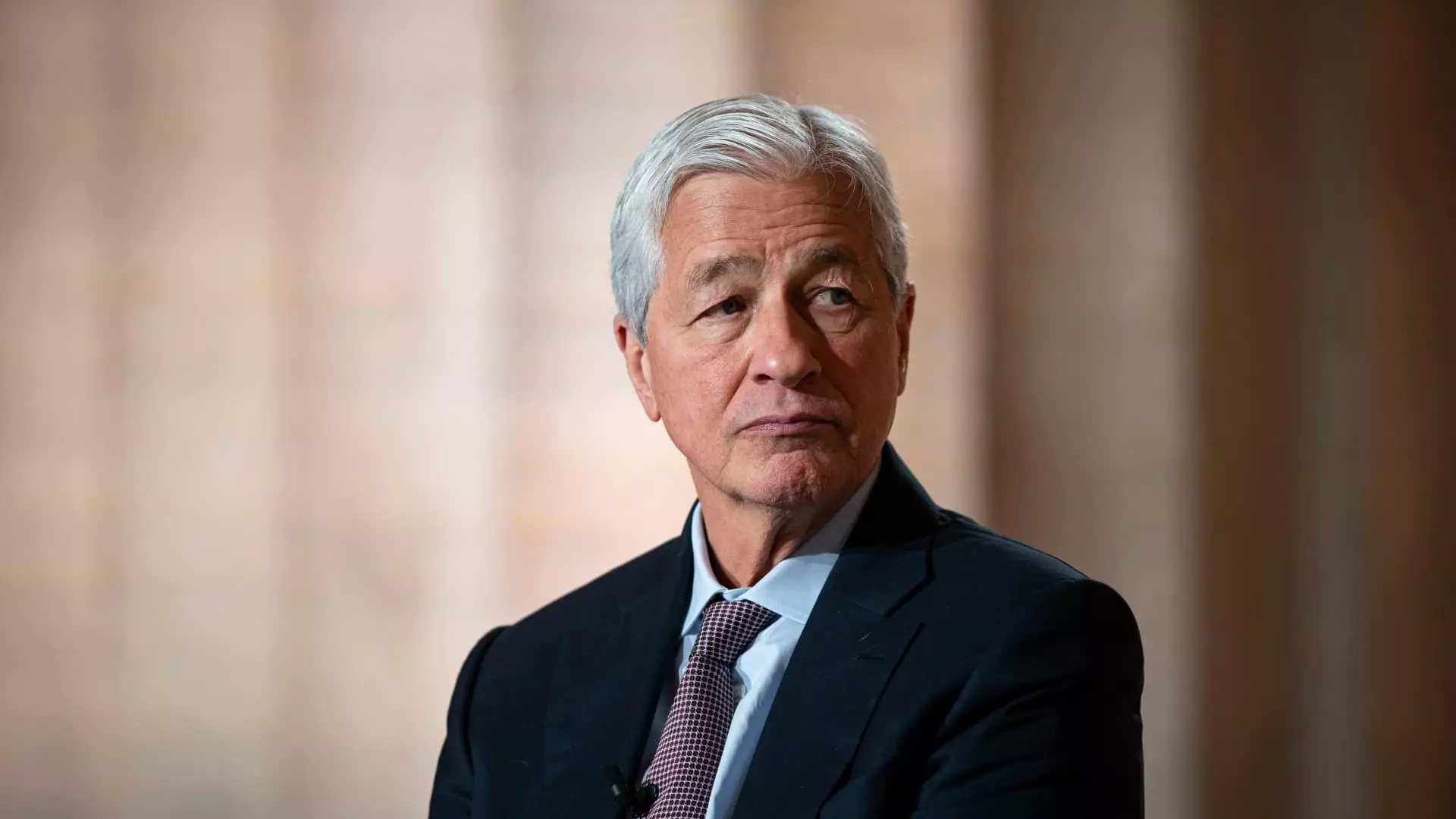As JPMorgan Chase gears up to unveil its first-quarter earnings this Friday, market analysts are brimming with both optimism and apprehension. The expected earnings per share stand at $4.61, accompanied by a revenue forecast of $44.11 billion. These numbers are more than just metrics; they represent a barometer of the economic landscape in which the bank operates—a landscape marred by growing uncertainty stemming from intensified global trade disputes. With the bank set to lead the charge as the first of the major U.S. banks to report earnings, all eyes will be glued to the disclosure, particularly in light of recent political and economic developments.
The Economic Context: A Looming Cloud of Trade Tensions
The backdrop against which JPMorgan’s earnings are being assessed is fraught with tension. President Donald Trump’s recent actions to escalate trade tensions have sent ripples through global markets and stirred anxieties among investors and consumers alike. Jamie Dimon, JPMorgan’s CEO, echoed these concerns recently, suggesting that aggressive tariff policies could potentially send the U.S. economy spiraling into a recession. The banking sector is not immune to these broader economic currents; uncertainty typically leads to hesitancy in investment decisions, including initial public offerings and mergers—critical activities for driving fiscal growth.
The stark reality is that in such a climate, conversations surrounding last quarter’s performance may feel disengaged from the immediate challenges and prospects awaiting businesses. As Diemond and his contemporaries concentrate on results from a period preceding Trump’s revised tariffs—those that only initially lowered rates for most countries—the ripples of economic anxiety are likely to shape their overall narratives in this earnings season. Investors are seeking tangible insight into how consumer and corporate sectors are navigating these turbulent waters as they ponder the sustainability of current growth trajectories.
Mixed Signals: The Impact on Banking Operations
Amid the uncertainties, a paradox arises within the banking landscape. While some areas of investment banking face impediments—particularly in IPOs and merger and acquisition advisory—other opportunities appear to be blossoming. Wall Street’s trading desks may find themselves flourishing as volatility increases, allowing savvy operators to capitalize on the flux in the markets. This dichotomy is notable; while consumer confidence may dwindle, the propensity for aggressive trading can yield significant returns for banks.
The expectations set for JPMorgan Chase are not just about meeting forecasts; they are about conveying resilience in the face of adversity. Investors will be acutely aware that the quality of revenues and the types of business generated in this challenging climate could provide critical insights into the overall health of not just JPMorgan, but the wider banking sector as well.
A Future of Financial Services Under Scrutiny
Ultimately, as the earnings report draws nearer, the stakes for JPMorgan Chase elevate beyond mere finances. The company’s ability to adapt and respond to an increasingly uncertain financial landscape will not only define its success but may also stand as a litmus test for the overall health of the banking sector. As the world watches, it remains to be seen whether JPMorgan’s leadership can navigate the turbulent seas ahead while simultaneously reassuring stakeholders that stability is within reach.

